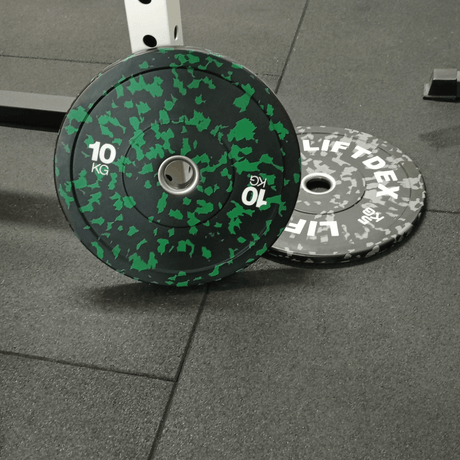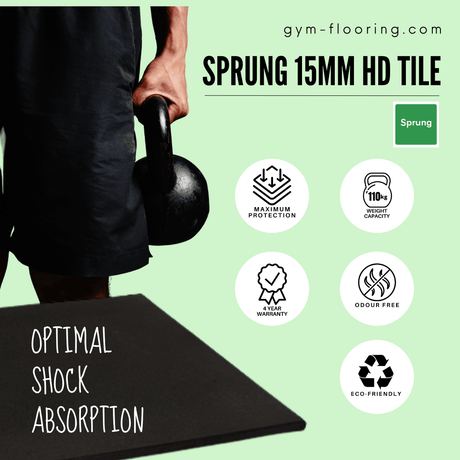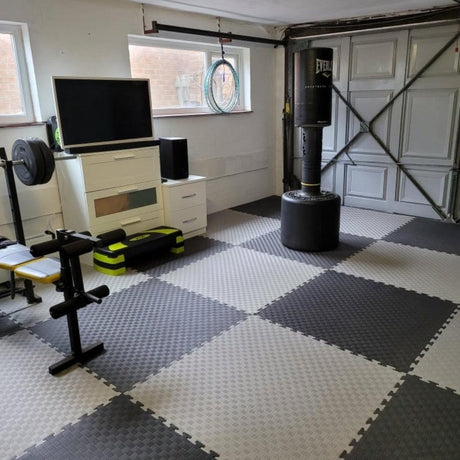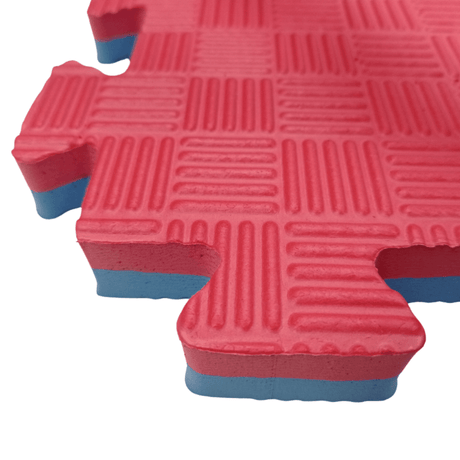When it comes to fitness, we all love the idea of a quick transformation. Six-pack abs in six weeks? Sounds great in theory, but let’s be honest – real, lasting results take time, consistency, and a solid plan.
Whether you're just starting out or already smashing PBs in the gym, setting realistic fitness goals is the key to staying motivated and achieving long-term success.
Here’s how you can do it.
Table of Contents
Make a Plan – and Keep It Flexible
Focus on Recovery
Be Kind to Yourself
The Bottom Line
Strategies for Longterm Fitness Success
Start with Your Why

First things first – why do you want to get fit? Do you want to run a 10k without gasping for air, lose weight for health reasons, or finally nail a pull-up? Understanding your "why" will give you a sense of purpose and keep you going when Netflix and snacks are calling.
Your goals should be personal and meaningful to YOU, not just what’s trending on Instagram.
Set SMART Goals
You’ve probably heard this one before, but it’s a classic for a reason. SMART goals are:
- Specific: What exactly do you want to achieve? (e.g., “I want to do 20 press-ups in a row.”)
- Measurable: How will you track your progress?
- Achievable: Be honest with yourself – is this doable based on your current fitness level?
- Relevant: Does this align with your “why”?
- Time-bound: Set a deadline, but be flexible.
For beginners, this might look like: “I want to jog 2km without stopping within six weeks.” For advanced athletes, it could be: “I want to increase my squat by 10kg in three months.”
Break It Down
Big goals can feel overwhelming, so break them into smaller, bite-sized steps.
- Beginners: Start with a 10-minute walk every day, and gradually build up.
- Advanced: If your goal is to improve your endurance, focus on incremental improvements in your training volume or intensity.
Each small win builds momentum and confidence, so celebrate those milestones!
Make a Plan – and Keep It Flexible

Whether you're a newbie or a seasoned athlete, a plan is essential.
- For beginners, this could mean committing to two or three workouts a week. Start simple: bodyweight exercises, light jogging, or group classes are great options.
- For advanced folks, your plan might involve periodised training cycles, tracking macros, or experimenting with new training styles like HIIT, hybrid workouts or powerlifting.
Remember, life happens – work deadlines, holidays, or just low-energy days. Adjusting your plan doesn’t mean failure; it’s part of the process.
Track Your Progress
You don’t need a fancy app (although there are plenty out there!). A simple notebook or notes app can do the trick. Track things like:
- Your workouts: What did you do? How did you feel?
- Measurements (if weight loss/gain is your goal)
- Personal bests: Celebrate when you smash them!
Seeing progress, no matter how small, is incredibly motivating.
Mix It Up
Avoid the dreaded plateau by keeping your workouts interesting.
- Beginners: Once you’ve nailed the basics, try new activities – yoga, swimming, or dance classes can keep things fresh.
- Advanced: Switch up your training variables. If you’re a runner, add some strength training. If you lift weights, try functional fitness or a new programme. Hybrid training is an excellent approach to training your favourite way but adding new techniques and routines in for overall effectiveness and variety.
This not only helps you progress but also keeps boredom at bay.
Focus on Recovery
Fitness isn’t just about smashing workouts – recovery is equally important. Joe Wicks (The Body Coach) highlights the importance of post-workout recovery:
"Recovery is just as important as the workout itself. Without proper rest, your body can't repair and grow stronger."
Here's some quick tips for establishing a proper recovery routine:
- Get enough sleep. This is when your body repairs and grows stronger.
- Fuel your body with nutritious food. Think of food as fuel, not a reward or punishment.
- Rest days are non-negotiable. Overtraining is counterproductive, so listen to your body.
- Practice regular recovery techniques to get the most out of your training

Be Kind to Yourself
Progress isn’t linear. Some weeks you’ll feel like a superhero; other weeks, just getting out of bed is a win. That’s normal.
- For beginners, don’t compare your journey to others. Everyone starts somewhere.
- For advanced athletes, recognise when you need a break or when to shift your goals.
Fitness is a lifelong journey, not a short-term project.
Celebrate Non-Scale Victories

Remember, fitness isn’t just about aesthetics. Celebrate things like:
- Improved energy levels
- Sleeping better
- Feeling stronger or less stressed
- The confidence to try new activities
These wins often matter more in the long run than any number on a scale or stopwatch.
The Bottom Line
Whether you’re lacing up your trainers for the first time or chasing advanced athletic goals, the key to long-term fitness success is setting goals that are realistic, meaningful, and flexible. Build consistency, embrace progress over perfection, and enjoy the process.
Because at the end of the day, the best fitness goal is one that keeps you coming back for more.
Considered building a dedicated workout studio at home? Many people attribute their long-term success to having a flexible and easily accessible place to train. Check out our Bestselling Home Gym Flooring options to get started.




















